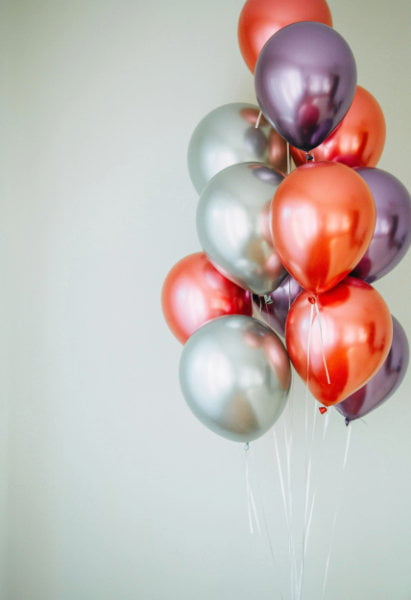Every four years, such as today, our calendar has a day added to February, sparking a variety of leap year superstitions, beliefs and customs.
This exploration will look at superstitions surrounding Leap Year, curious rituals, beliefs, and myths that have endured centuries.
Join us as we leap into the unknown, navigating the strange and fascinating world of Leap Year superstitions.
Origins of Leap Year Superstitions
With one day added to the modern calendar, Leap Year has roots in ancient civilisations’ attempts to synchronise the lunar and solar calendars. This historical significance laid the groundwork for various cultural and religious beliefs surrounding Leap Year. Common superstitions began in these early traditions and have persisted throughout the centuries.
Common Leap Year Superstitions and Beliefs
Leap Day Proposals
On February 29th, it is widely accepted that women can take the lead in proposing marriage. Entwined in legends and fanciful romance, there is this notion that women can propose marriage on February 29th, which has sparked curiosity across generations.
Some couples see Leap Day as a chance for both partners to show their love and dedication. Social media is filled with tales of Leap Day proposals. It features ways to propose, emotional declarations of love, and happy partnership announcements.

Breaking Gender Norms and Empowering Women
The charm of Leap Day proposals goes beyond romance; it symbolises a push against gender roles and a toast to empowerment. In a society where norms often influence who can pop the question when Leap Day presents a chance for women to take charge of their love lives. By embracing this tradition, individuals challenge outdated conventions and assert their autonomy in matters of the heart.
Leap Year Babies
People born on February 29th, often called Leap Day babies, have inspired various myths and beliefs.
Beliefs about ageing and Leap Year birthdays vary. Some people see Leap Year birthdays as a way to stay forever young, while others consider them a kind of jinx.
Myths and Beliefs
With their once-in-four-year birthday, Leap Year babies are viewed as exceptionally lucky, endowed with good fortune and blessings. Some people believe Leap Year babies have abilities or unique insights, almost like they possess powers. The legends and traditions handed down over time add to the aura surrounding individuals born on Leap Year, influencing how they are viewed and understood.
Individuals born on Leap Year approach life with an outlook and determination fueled by their belief in their natural luck and blessings.
Unique Experiences and Celebrations
For Leap Year babies, celebrating birthdays can be a truly unique experience. They often find themselves explaining the intricacies of their birthdays to others. However, this unique occurrence also nurtures a feeling of companionship among those born on Leap Day, creating a connection formed by their birth date.
Weather Predictions
Throughout the ages, individuals have sought guidance from nature through signs and predictions, with Leap Year weather forecasts being one of them. There is a belief, in folklore, that the weather on February 29th carries a meaning. Some superstitions suggest that it has the power to predict the bad weather that will come in the year. Superstitions often shape how people view weather patterns, from sunny skies to turbulent stormy weather.
Leap Year weather predictions might have some influence on beliefs. Scientific explanations provide a more logical insight into meteorological events. Meteorologists and climate experts attribute weather patterns to conditions, ocean currents, and global climate trends rather than simply relying on the calendar date. On Leap Day, the weather might give us a glimpse of what’s happening. Its ability to forecast the future is mostly guesswork. This challenges the idea that Leap Day weather can directly predict what’s to come in the future.
Even though there isn’t proof, people are still intrigued by using Leap Year weather predictions. It sparks curiosity. It leads to conversations about the wonders of nature and how destiny plays out.
Leap Year Misfortune
Tales of misfortune attributed to Leap Year occurrences range from personal tragedies to global crises. An analysis of why Leap Year could be linked to certain occurrences provides insights into how people think and the beliefs that shape our society.
Origins and Beliefs
The reasons behind the superstitions surrounding Leap Year mishaps differ among the cultures that uphold this belief. Some people believe that the Leap Year calendar’s irregularity causes a disturbance in the natural order of time. Leap Year superstitions have deeply embedded themselves in our shared awareness, sparking unease and worries around year four.
Psychological Insights
An analysis of why Leap Year may be associated with negative events reveals insights into human psychology and societal beliefs. The inclination of humans to find patterns and significance in chance occurrences, referred to as apophenia, greatly contributes to the continuation of beliefs in superstitions such as the misfortune associated with Leap Year. The mystery of the unfamiliar and the wish to influence results add to the appeal of superstitions that provide insights or cautions regarding what lies.

Other Leap Year Superstitions and Beliefs
Leap Year Resolutions: During a Leap Year, some people set resolutions or goals in addition to their New Year’s resolutions, thinking they hold meaning.
Leap Year Prosperity Rituals: During Leap Year, certain individuals engage in rituals or ceremonies to invite wealth, prosperity and good fortune into their lives.
Putting off Important Life Choices: Certain people delay making life choices like getting married or starting a job in Leap Years because of superstitions surrounding bad luck.
Extra Vigilance for Accidents: During Leap Years, some believe it’s important to be careful and watchful to prevent accidents and bad luck.
Avoiding Leap Year Weddings: In a few societies, there is a belief that tying the knot in a Leap Year could bring bad luck and potentially result in marriage difficulties or separation.
Conclusion
The many strange Leap Year superstitions continue to captivate and intrigue people worldwide. From Leap Day proposals to weather predictions and beyond, these beliefs offer a glimpse into the human psyche and cultural traditions.
Leap Year superstitions serve as a reminder of the resilience, happiness and sense of belonging that define the human experience. Regardless of our beliefs regarding superstitions, they persist in influencing our lives subtly and significantly, becoming intertwined with our cultural practices and shared awareness.
Until we meet again in the next blog post, may good fortune smile upon you always on this leap day.





0 Comments